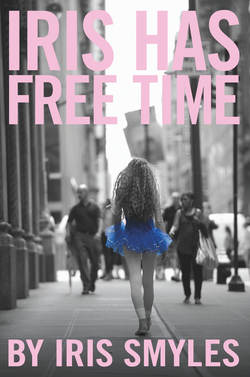Читать книгу Iris Has Free Time - Iris Smyles - Страница 17
На сайте Литреса книга снята с продажи.
7
ОглавлениеMost students take on internships as a means of gaining professional experience while making a good impression on a prospective boss, hoping to leave with the promise of a future job, if not a recommendation for a comparable job elsewhere. During my brief time at The New Yorker, I was careful to aquire no new skills and stealthily avoided all of my superiors, behaving instead as if I were crashing a party.
Though I’d worked really hard to get my internship at The New Yorker, I’m not sure what my purpose was once I actually got there. I had no interest in publishing, really. It just seemed like a cool place to hang out for a semester, an interesting alternative to another literature or philosophy class, maybe a new spot to meet guys.
Though I thought often about the future—spinning fantasies, my favorite pastime—it was never something I planned. I would be a great writer, a famous actress, a cartoonist on the side.... I didn’t need to worry about how, because destiny would take care of that for me. “Fate is character,” the ancient Greeks said, and people were always remarking on what a character I was.
In the meantime, I enjoyed drawing cartoons—what I did in class while everyone else took notes—so I figured the cartoon department would be a fun place to kill time. I did not try to get the attention of Bob Mankoff, the cartoon editor who, had he liked me, might have offered me a job upon graduation, or at least offered to glance at my cartoons. Instead, I avoided him.
Though he seemed a genial man, he was solid while I was all shadow. And when he entered the room, it was as if someone had cut in front of the light or removed the screen on which I had been casting my fabulous sillhouette. He’d come in, and my illusions would vanish, my useless hands curling into knots at my sides. Reduced to who I was, I was nothing like who I would be. I was not great, not noteworthy. I was just Iris, the shy intern, sneaking around the office in gold lamé.
When not drinking or cavorting in nightclubs and at parties, my self-esteem—so prodigious, so grand—all but evaporated. Indeed, my daytime self—the one who’d made it home the night before, got dressed in the morning, and was not still drunk—stood in such stark contrast to my nightlife persona that one afternoon, going up the elevator at 4 Times Square, an employee from one of the women’s magazines could not stop staring. “Excuse me,” she said at last, “but do you know you have an evil twin running around Manhattan singing karaoke?”
I blushed violently before I managed to get out, “Actually, that’s me. I’m my evil twin.”
